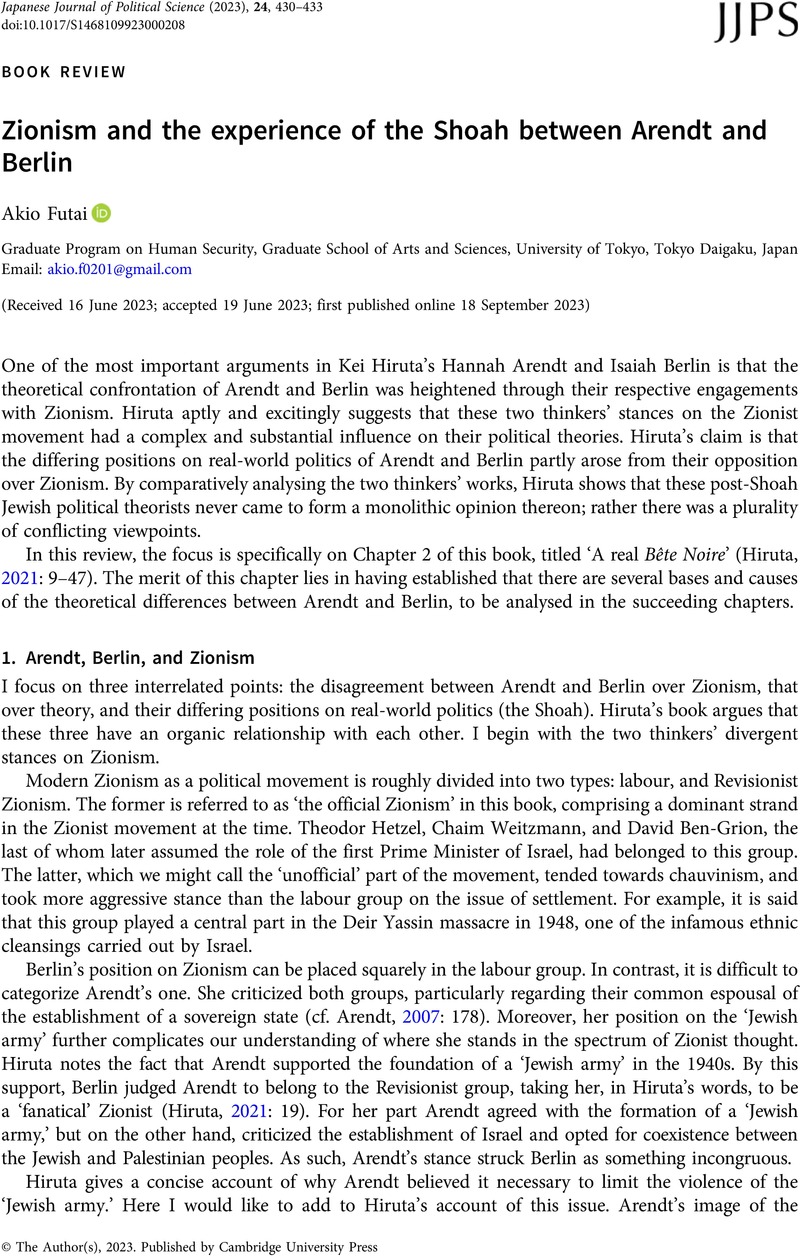No CrossRef data available.
Article contents
Zionism and the experience of the Shoah between Arendt and Berlin
Published online by Cambridge University Press: 18 September 2023
Abstract
An abstract is not available for this content so a preview has been provided. Please use the Get access link above for information on how to access this content.

- Type
- Review
- Information
- Copyright
- Copyright © The Author(s), 2023. Published by Cambridge University Press
References
Arendt, H (2007) The Jewish Writings, Ed. Jerome Kohn and Ron Feldman. New York: Schocken Books.Google Scholar
Aschheim, S (ed.) (2001) Hannah Arendt in Jerusalem. Berkeley, Calif: University of California Press.Google Scholar
Barnouw, D (1990) Visible Spaces: Hannah Arendt and the German-Jewish Experience. Baltimore: Johns Hopkins University Press.Google Scholar
Butler, J (2013) Parting Ways: Jewishness and the Critique of Zionism. New York: Columbia University Press.Google Scholar
Futai, A (2022) Why ‘Jewish army’ matters: the ideological meaning of Arendt's Zionism and its impact on her later political thoughts. Arendt Platz 7, 36–50 (in Japanese).Google Scholar
Gines, K (2014) Hannah Arendt and the Negro Question. Bloomington: Indiana University Press.Google Scholar
Hiruta, K (2021) Hannah Arendt and Isaiah Berlin: Freedom, Politics and Humanity. Princeton: Princeton University Press.Google Scholar




